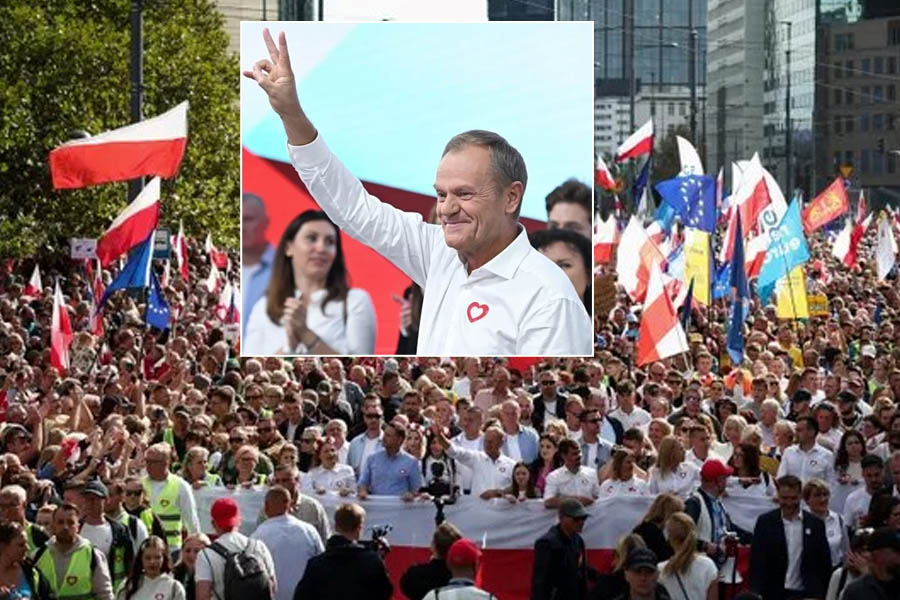
Warsaw, Poland - In a historic turn of events, Poland's political landscape has witnessed a seismic shift as the right-wing populist Law and Justice party (PiS) secured the most seats in the general election but fell short of securing a third term in office, according to the latest exit poll data. The country now stands on the brink of change, with the centrist opposition, led by Donald Tusk's Civic Coalition, holding the promise of a new era.
The exit poll, conducted by Ipsos, indicated that PiS garnered 36.8% of the votes, with the centrist opposition close behind at 31.6%. This outcome has paved the way for Tusk and his Civic Coalition to potentially form a coalition government, marking an end to PiS's eight-year rule under the leadership of Jaroslaw Kaczynski.
Emotions ran high in the streets of Warsaw as Donald Tusk, the veteran politician and former Prime Minister, addressed a jubilant crowd. "Poland won, democracy has won," Tusk declared, his voice echoing the hopes of many. "This is the end of the bad times, this is the end of the PiS government."
The atmosphere in Civic Coalition's headquarters was electric as supporters celebrated what they believe to be the return of democratic values and a fresh start for Poland. Tusk's party, along with potential allies, the center-right Third Way and left-wing Lewica, is poised to challenge the status quo.
The election, with a reported turnout of 72.9%, saw long queues outside polling stations well into the night. Young voters turned out in impressive numbers, reflecting their belief in the power of change. Meanwhile, PiS loyalists expressed a mix of hope and uncertainty, chanting party slogans and waving Polish flags in the face of potential defeat.
Despite PiS's attempts to maintain power, the tides seemed to turn against them, especially with the emergence of the center-right Third Way, which promised tax reforms and an alternative vision for the country. Poles living abroad also played a significant role, with over 600,000 registered expats participating in the electoral process, underscoring the global interest in the country's future.
A crucial aspect of this election was the simultaneous referendum held by the government, touching on topics such as immigration policies. The opposition encouraged its supporters to focus solely on the election, rejecting the referendum questions.
However, concerns lingered about potential attempts to manipulate the results. Thousands of Polish volunteers monitored polling stations to ensure a fair process. Despite these concerns, Borys Budka, head of the Civic Coalition parliamentary faction, exuded confidence in the victory. "Even if they try any tricks, it wouldn’t change the result," Budka asserted, emphasizing the resilience of the democratic process.
As Poland awaits the final results, the nation stands at a crossroads. The promise of a new coalition government led by Tusk raises hopes for improved relations with the European Union and a fresh perspective on issues such as immigration and judicial reforms. With the specter of a "Polexit" fading, Poland seems poised to embrace a future guided by unity, democracy, and progress. The world watches attentively as Poland steps into a new chapter, one that could redefine the nation's trajectory on the global stage.